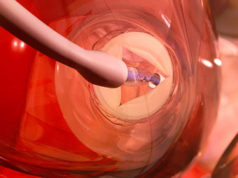
One-year follow-up results from a paediatric feasibility study of Xeltis bioabsorbable cardiovascular pulmonary graft have been presented as late-breaker at the 96th American Association for Thoracic Surgery annual meeting.
All five children, aged four to 12 years at study enrolment, had only one functioning heart ventricle as a result of congenital heart defects and showed significant improvement in their general conditions one year after surgery. The 12-month data also showed anatomical and functional stability of the graft and no device-related adverse events.
“All patients enrolled are approaching their two-year follow-up, and the results to date are remarkable,” says leading investigator and world-renowned cardiac surgeon, Leo Bockeria, who performed all five cases at the Bakoulev Centers for Cardiovascular Surgery in Moscow. “If further proven,” he adds, “this new technology may open up a new therapeutic approach in cardiovascular treatment.”
The success of this feasibility trial has allowed Xeltis to develop a bioabsorbable pulmonary heart valve, which will enter clinical trials in Europe this year. Xeltis is developing a bioabsorbable cardiovascular valves and vessels designed to enable endogenous tissue restoration (ETR), the natural restoration of complex anatomical parts within the body. The US Food and Drug Administration (FDA) has recently granted “Humanitarian Use Device” (HUD) designation for the Xeltis bioabsorbable pulmonary heart valve for the correction or reconstruction of right ventricular outflow tract (RVOT).
ETR is enabled by the unique porous structure of Xeltis bioabsorbable implants, according to the company. The implants are designed to harness the body’s natural healing process, to pervade them with new healthy tissue, and form complex body parts before the implants get absorbed.










